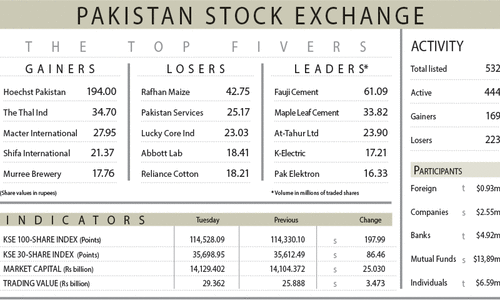 IF 2008 can be described as a year of inflation, 2009 may turn out to be a year of unemployment unless the government gives up its habit of waiting for an issue to assume the proportion of a crisis, and re-energises the economy to nip the problem in the bud.
IF 2008 can be described as a year of inflation, 2009 may turn out to be a year of unemployment unless the government gives up its habit of waiting for an issue to assume the proportion of a crisis, and re-energises the economy to nip the problem in the bud.
Even people not conversant with economics understand what it means when nan (bread) sells at Rs7-10, up from Rs3-5, in many parts of the country. It is not difficult to understand the impact of the hike in basic food items on the family budget of the segment of population that spends 60 per cent of its income on kitchen items. Currently, the average food inflation at 35 per cent is an all-time high.
While the citizenry is reeling under the pressure of inflation, the problem is being compounded by lay-offs and retrenchments or the fear of job loss in the days ahead.
There is no firmed up data available, but scattered information suggests that the slow down in the economy is now taking its toll on an already uncomfortable employment situation in almost all categories.
No consolidated figures of people pushed out of regular work over the last six months are available and the official figures put unemployment at 7.5 per cent in fiscal 2008. This rate is higher by one per cent over the previous year.
An informal survey by Dawn, however, reveals that the situation is alarming in many key sectors that include some star performers that dominated the economic horizon during Musharaf/Shaukat Aziz regime. There are reports that indicate that problem is brewing in financial sector, real estate business, media, supporting services in capital market, currency business, automobile, pharma and the ailing textile industry.
Javed, 27, joined a media group three years back as a member of supporting staff at a salary that far exceeded his expectations at that time. He was shunted out along with a few dozen others this month as media houses struggled to readjust to difficult times by cutting costs.
A few marketing executives in private media outfits confirmed that the flow of advertisement income has come down by at least 10 per cent in case of leading groups as compared to the last year. The situation is worse for smaller companies. There are unconfirmed reports that at least two TV channels have been closed down and a few others are seeking mergers and sell-offs.
“The advertisement budget is the first to come under axe in situations of distress and the last one to increase when a business is booming”, said a frustrated marketing professional. “If business shrinks, the employment-base in an organisation also shrinks. It hardly comes as surprise to me if media groups are trimming to become leaner. I expect many more lay-offs from media organisations across the board if the current economic environment persists”, a corporate head responded from his office in Lahore.
The financial sector, currency, capital and real estate markets are all depressed. The mutual funds and asset management firms are involved in an exercise to contain their losses. The situation is worse for currency dealers who reportedly have fired a sizeable number of their staff. The real estate and capital market have an all-time low turnovers for the last few months driving small time brokers out of the rings.
Car sales during July-September have come down by 40-50 per cent for many companies. The situation has impacted adversely on the car vendors, who have responded by cutting on their staff in Karachi and some cities in Punjab.
“I used to make a decent salary a year back. There was more work than the company could handle in the market. The overtime used to supplement my regular salary. The situation has changed drastically over the last one year as orders from major companies have declined. First, overtime was stopped, then contractual workers were shown the door, now the jobs of even regular workers are at risk”, said Tauqeer, father of five school-going children, an experienced automobile expert engaged in the automobile vendor sector.
“The drastic drop in sale of cars and motorcycles has led to closure of some auto vendors while others are struggling to keep afloat with fewer workers”, said owner of a small workshop.
In banking, there are no reports of noticeable retrenchment but the mood is understandably grim. The trend of poaching and jumping jobs in an upbeat sector has disappeared and people are worried for their future. “The process of mergers and acquisition, now taking place, entails human cost. Some people are shunted out”, said a senior banker watching developments from close quarters.
There are some reports of closure of 50 per cent of textile ginning units in Faisalabad and to a lesser extent, in some other cities. Dilshad, an experienced housemaid, said that her family paid an agent Rs75,000 to arrange placement for her son-in-law in the Middle East. “For the last eight months Javed has not been able to find a regular job. You cannot let young men wander around and become useless. When my daughter got married, he was working in a garment factory but the factory closed down and he was rendered jobless eight months back” she said.
Three major multinational pharmaceutical companies - MSD, Orgenon and BMS - have left and half a dozen are rumoured to be in the process of winding up their operations. There is anxiety in workers over terms of employment and great concern over their future in the industry. Some trading companies also confirmed that many firms are troubled as increase in customs duties has led to reduction in demand of imports in certain categories.
Are there some inherent anti-workers biases in corporates that induce them to retrench them at the first opportunity, a local tycoon was asked?
“Not at all, retrenchment of workers is a very difficult decision for any entrepreneur and is taken when it becomes unavoidable. We do not run welfare trust. I can only hire if there is need. Besides, we cannot cut on fixed cost, so cost on variables has to be rationalised when a business comes under stress”, said a business executive in Karachi. Syed Khursheed Shah, federal minister for labour and manpower and overseas Pakistanis, was not available for comments. Malik Asif Hayat, secretary labour and manpower, however, was not too worried as he expected mild impact of the global economic upheaval on the domestic economy. He said textile sector was almost unaffected that employs the highest number of workers.
He dismissed the view that unemployment would assume serious proportion in the near future; besides, he felt, that the elected government was alive to the problems facing the country. “The government’s economic revival package will be announced shortly. It concentrates on pumping huge sums of money into the economy through massive public sector development programmes (PSDP). It will take care of many problems being faced by the economy,” he said confidently.












































